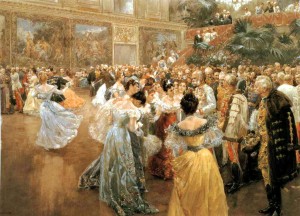Nov 06 | “The Dance” (Sermon – All Souls)
John 11:21–27
21Martha said to Jesus, ‘Lord, if you had been here, my brother would not have died. 22But even now I know that God will give you whatever you ask of him.’ 23Jesus said to her, ‘Your brother will rise again.’ 24Martha said to him, ‘I know that he will rise again in the resurrection on the last day.’ 25Jesus said to her, ‘I am the resurrection and the life. Those who believe in me, even though they die, will live, 26and everyone who lives and believes in me will never die. Do you believe this?’ 27She said to him, ‘Yes, Lord, I believe that you are the Messiah, the Son of God, the one coming into the world.’
The month of November begins with a winding down of the light, and we with Christians around the world mark it with two celebrations: All Saints and All Souls. It’s good to have both, isn’t it? Not everyone is a saint, but everyone’s life, for better or worse, comes to an end. Loss is a part of creation, and we have ways which mark and acknowledge what has been engraved into our finite bodies.
There are two ways to mark the loss of someone we loved. One of them is a prescribed action, cobbled together across time and cultures: the ritual of mourning. Funerals, burial procedures, the platitudes we tell the mourner: all of those things which we do according to custom fall under this category.
The second way is not prescribed but is ingrained, and that is grief. There are ways of grieving that are prescribed by culture, but we are often not very good at following them, and sometimes the prescribed ways are actually dangerous. Instead of thinking of grief as a process or an illness, today I want to speak of it as a party, specifically, a ball. Not in the sense that it’s fun. It’s not – it’s dreadful most of the time. It’s a ball in the sense that it is a big dance, where couples, trios, and quartets weave in and out in a grand display. We are the guests but often there against our will. The feelings that accompany grief swirl back and forth in a dizzying rhythm: sadness, anger, betrayal, relief: they are our dance partners. Sometimes the dance is flawless, and sometimes our toes are trod upon. Sometimes we recognize the song, and sometimes we don’t. All the prescribed platitudes in the world cannot fully remove us from this dance, whether we want them to or not. Finally, the host of the ball is Time, and only she can tell us when we’re allowed to leave. Even then, we may leave for a time only to find ourselves invited back again.
Martha is at the dance when Jesus comes to her. Her sister Mary is also there, dancing with Weeping. It’s difficult to be sure of whom Martha is dancing with because we can’t hear the tone of her voice through the text. It could be Faith or it could be Platitudes. Maybe she’s dancing with both at once.
Either way, Jesus, Lord of the Dance, cuts in on Martha and her partner. As Jesus and Martha spin around the room, Jesus changes the beat. “I AM the resurrection and the life.â€
Jesus in John’s Gospel teaches that we can always go deeper – deeper than our first assumptions, or if you like, our prescribed notions. He tells Nicodemus to be born again. “That’s impossible!†No, Nicodemus, go deeper. He tells the Samaritan woman he can give her living water. “I’d love to drink that!†No, go deeper. He says to Martha, “Your brother will rise again.†“Yes, on the last day.†No, Martha, go deeper. What Jesus is trying to show us is about more than performing resurrection magic, or enfolding our beloved dead into eternal embrace in heaven, or whatever happens to people when they die. That’s not what’s important about this story. We have to go deeper.
Jesus is the resurrection AND the life – not biological beating heart life but something more than that: the deeper life – not just for Lazarus but for Martha and Mary and all of us. It’s the deeper life we all are offered by God, the one who dances with us, who came into the world to learn grief firsthand. It’s the deeper life that’s marked by an integration of loss into our own stories, rather than denying or letting it define us. It’s the deeper life that doesn’t come according to our schedule or our needs. It’s the deeper life that must at the absolute least be hungered for, or it won’t ever come at all, because it does not insist on its own way, and it won’t come if it’s not invited.
Maybe this is what it means when Martha says, “the Messiah who is coming into the world.†Maybe for our purposes today, we can give it a little revision: “the Messiah who is arriving at the ball.â€
Sometimes it’s so crowded in that dance hall it’s hard to see him. If you never catch sight of him while you’re stuck spinning around in there, it’s okay. He understands…and he sees you.
Amen.
-Clarity